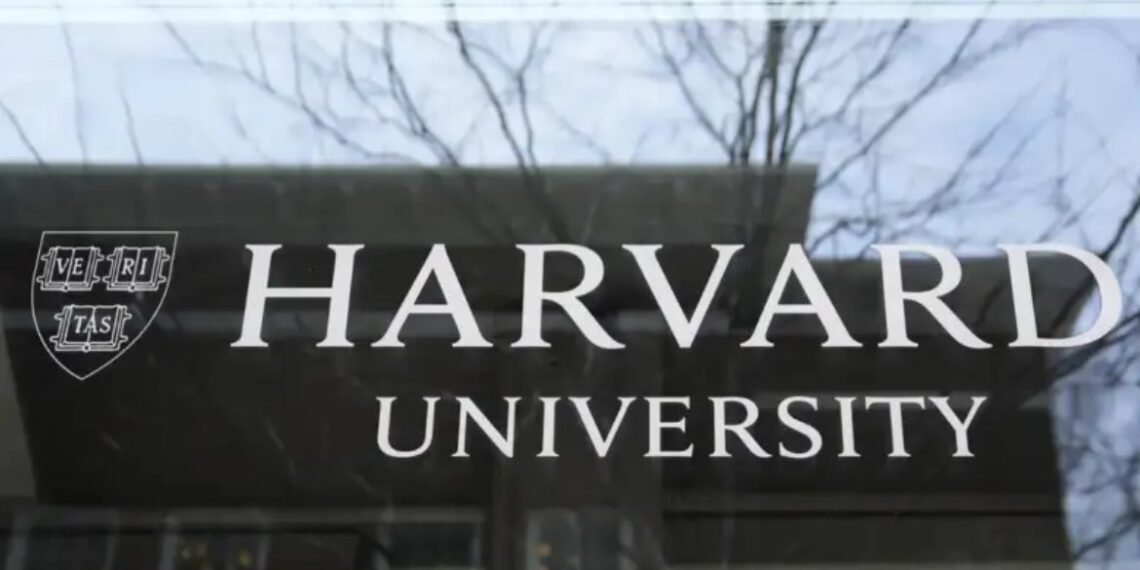Harvard faces a DHS ultimatum: comply with Trump administration policies or lose the ability to enroll international students, a move following funding cuts and allegations of “anti-American” sentiment on campus.
BY PC Bureau
Harvard University is facing a significant threat to its international student population after the Department of Homeland Security (DHS) issued a stern ultimatum on Wednesday: adhere to policy changes demanded by the Trump administration or risk losing the authority to enroll foreign students. This latest development intensifies the escalating conflict between the federal government and the prestigious Ivy League institution, coming on the heels of the government stripping Harvard of over $2 billion in federal funding and contracts, as well as terminating over $2.7 million in grants.
In a strongly worded letter, DHS Secretary Kristi Noem mandated that Harvard provide detailed records of any violent activities committed by foreign student visa holders, setting a firm deadline of April 30. Secretary Noem left no room for ambiguity regarding the consequences of non-compliance.
ALSO READ: Trump, Yunus Among TIME’s 100 Most Influential Leaders of 2025; No Indian Nationals Featured
“And if Harvard cannot verify it is in full compliance with its reporting requirements, the university will lose the privilege of enrolling foreign students,” Secretary Noem stated definitively. She further escalated the rhetoric by sharply criticizing the university’s environment, asserting, “With a $53.2 billion endowment, Harvard can fund its own chaos — DHS won’t,” and alleging the presence of an “anti-American, pro-Hamas ideology” within the institution.
The Trump administration’s aggressive stance against Harvard is framed within a broader national crackdown on university campuses. The administration has openly threatened institutions with federal funding cuts in response to pro-Palestinian protests against US ally Israel’s military actions in Gaza following the October 2023 Hamas attack. Parallel efforts to deport foreign protesters and the widespread revocation of hundreds of visas across the country are also underway.
🚨 After funding cuts Harvard University may also lose ability to enroll foreign students pic.twitter.com/8U4F9LSyUC
— Geopolitical Kid 🚨 (@Geopoliticalkid) April 17, 2025
The current funding freeze imposed on Harvard was reportedly triggered by the university’s refusal to comply with the administration’s demands for specific policy alterations and regular progress reports. In response, Harvard University President Alan Garber issued a robust defense of the autonomy of private educational institutions. “No government — regardless of which party is in power — should dictate what private universities can teach, whom they can admit and hire, and which areas of study and inquiry they can pursue,” President Garber asserted.
ALSO READ: Torture Fears Rise as China Blocks Viewing of Abbot’s Body
While Harvard possesses a substantial endowment and receives approximately $9 billion in federal support annually, primarily channeled through its affiliated hospitals and research endeavors in fields such as cancer and space exploration, other universities facing similar pressure appear to be yielding to the administration’s demands. Columbia University, for instance, has reportedly reached a settlement with the federal government.
The Trump administration’s actions extend beyond Harvard, with funding measures also taken against other prominent universities including Columbia, Princeton, Brown, Cornell, and Northwestern. The administration has also signaled its intention to withhold funding over contentious “culture war” issues, such as Diversity, Equity, and Inclusion (DEI) programs and transgender policies.
This escalating confrontation raises critical questions about the future trajectory of federal funding for higher education and the permissible extent of government influence over the academic and admissions policies of private universities. The potential loss of foreign student enrollment for a globally recognized institution like Harvard could have profound and far-reaching implications for the international landscape of US higher education.













